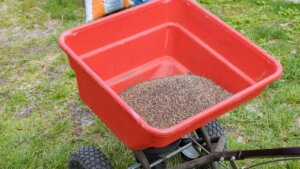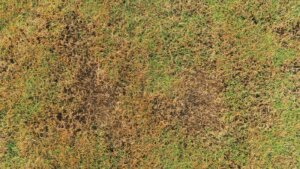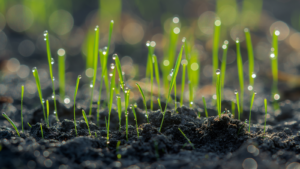Composting is nature’s way of recycling. By converting organic materials like food scraps, yard waste, and other biodegradable items into a nutrient-rich substance, you’re reducing waste and creating a powerful fertilizer for your garden. But how does this process work, and how can you start composting at home?
In this guide, you’ll get a clear overview of composting. We’ll explain the basics, like the difference between cold and hot composting, and give tips for setting up your compost pile or bin. You’ll learn how to layer, maintain the right moisture, and turn your compost to get it just right. Plus, we’ll cover the different compost bins, how to know when your compost is ready, and tackle some common challenges people face. Whether you’re an experienced gardener or starting, this article will provide valuable insights.
Ready to discover the benefits of composting and elevate your garden game? Let’s dive in!
Composting Method: Cold vs. Hot Composting
- Cold Compost: This method is the most straightforward. You simply pile up your organic materials and let nature do its work. Over time, the pile will decompose. It’s a slower process but requires less effort.
- Hot Compost: This method involves regularly turning the compost to introduce air, which speeds up the decomposition process. A hot compost pile can produce usable compost in as little as a few weeks, but it requires more attention and effort.
Setting Up Your Home Compost Pile or Bin
The setup process is relatively similar whether you choose a compost pile or a compost bin. Here’s how to get started:
- Choose a Location: Find a spot in your yard that’s easily accessible. It should be a place where the compost can be left undisturbed but is easy to reach with organic materials.
- Layering: Start with a layer of coarse, dry materials like twigs. Then alternate between green and brown materials. Green materials include vegetable scraps, coffee grounds, and grass clippings. Brown materials encompass leaves, paper, and cardboard.
- Maintain Moisture: Your compost should be moist, like a wrung-out sponge. If it’s too dry, water your compost. If it’s too wet, add more brown materials.
- Turn the Pile: If you’re hot composting, turn the pile with a shovel or compost fork every week to introduce air and speed up the process.
Choosing the Right Compost Bin
Various compost bins are available, from DIY compost setups to store-bought compost tumblers. When choosing a bin, consider the following:
- Size: Choose a bin that suits your needs depending on the amount of compostable waste you produce.
- Material: Bins can be made of wood, plastic, or metal. Each has its pros and cons.
- Accessibility: Ensure the bin is easy to open for adding materials and turning the compost.
How to Use Compost
Once your compost looks dark, crumbly, and has a pleasant earthy smell, it’s ready to use. Here’s how to make the most of it:
- Garden Beds: Mix compost into your garden soil. It will improve soil texture, boost fertility, and enhance soil health. Compost is a great source of nitrogen, phosphorus, and potassium – essential elements for a lush, vibrant lawn.
- Potted Plants: Add a handful of compost to potted plants to provide essential nutrients.
- Lawn: Spread a thin layer of compost over your lawn to improve soil quality and grass health. For more detailed guidance, check out our lawn fertilizer schedule.
Accelerating the Composting Process: Tips for Quicker Results
Composting is a natural process, but sometimes, gardeners want to speed things up to get that finished compost sooner. Whether you’re an impatient gardener or just eager to make the most of your compost materials, here are some methods to accelerate the composting process:
- Turn the Pile Regularly: One of the most effective ways to speed up the composting process is to turn the compost pile frequently. This introduces air, which aids in decomposition and helps maintain the temperature of the pile. An active compost pile heats up, and by using a compost thermometer, you can monitor this heat, ensuring optimal conditions for decomposition.
- Worm Composting: Introducing worms, especially red wigglers, can significantly speed up composting. Worm composting, or vermicomposting, involves using worms to break down organic matter. They digest the food waste and other compost materials, producing worm castings, a rich form of compost.
- Chop or Shred Materials: The smaller the compost materials, the faster they break down. By shredding or chopping food waste and yard debris before adding them to the compost bin or pile, you increase the surface area for microbes to work on, accelerating decomposition.
- Maintain Moisture Levels: A compost pile should be moist but not soggy. Regularly check the moisture levels and water your compost if it gets too dry. Conversely, if it’s too wet, add brown materials like leaves or cardboard to absorb excess moisture.
- Use a Compost Activator: Commercial compost activators introduce beneficial microbes to the pile, speeding up the decomposition process. These can be especially useful if you’re starting a new compost heap.
- Layering: Ensure a good mix of green and brown materials in your compost. Green materials, like vegetable scraps and grass clippings, provide nitrogen, while brown materials, like leaves and paper, offer carbon. This balance is crucial for speedy decomposition.
- Monitor the Pile’s Temperature: The center of the pile tends to be the hottest, aiding in faster decomposition. By keeping the pile’s temperature optimal with the help of a compost thermometer, you can ensure the best results in a shorter time.
- Choose the Right Composting System: Depending on your needs, you might opt for traditional composting, backyard composting, or even large-scale composting facilities. Each system has its advantages, and some might be faster than others.
By implementing these methods, you can ensure that your compost is ready to use in a shorter timeframe. Whether you want to enrich your garden compost or handle compost more efficiently, these tips will help you get the most out of your composting project.
Common Composting Problems and Solutions
Like any process, composting can come with its set of challenges. Here are some common issues and how to address them:
- Bad Odor: This usually means the compost is too wet or needs more air. Turn the pile and add brown materials.
- Pile Not Decomposing: The compost might be too dry. Water your compost lightly and ensure it’s moist.
- Pests: Ensure you’re not adding meat, dairy, or oily foods to your compost. These attract pests. Also, turn your compost regularly to deter flies and rodents.
The Benefits of Regular Composting
Composting isn’t just about waste reduction. It offers a plethora of benefits:
- Soil Health: Compost introduces beneficial microorganisms to the soil, improving its health and structure. Learn more about soil improvement and soil amendments.
- Waste Reduction: By composting, you can significantly reduce the amount of waste that goes to landfills.
- Economic Savings: Instead of buying fertilizer, you produce it at home for free. Discover the benefits of organic fertilizers and synthetic fertilizers.
Unlocking the Potential of Composting
Composting is more than just turning waste into fertilizer. It’s about understanding the cycle of life, where waste isn’t waste but a resource. By embracing composting, you’re benefiting your garden and the planet. So, the next time you toss those vegetable scraps, think about their potential. Start composting and unlock the magic within your waste.
Elevate Your Composting Game with Terra Lawn Care
While composting is a fantastic DIY project, sometimes you might need a guiding hand to ensure you’re making the most of your organic waste. That’s where Terra Lawn Care comes in:
- Expert Guidance: With years of experience, we can help you set up, maintain, and optimize your composting process, ensuring you get the best results.
- Eco-friendly Solutions: Our commitment to the environment means we always prioritize sustainable and organic methods.
- Local Expertise: Being deeply rooted in Pennsylvania, we understand the region’s specific needs and challenges, ensuring your composting efforts align with local conditions.
- Continuous Support: Whether you’re facing challenges with pests, moisture levels, or decomposition rates, we’re here to assist every step of the way.
Don’t let the potential of your organic waste go untapped. Reach out to Terra Lawn Care today, and let us help you transform your composting journey. Together, we can make your garden thrive while making the planet a little greener!



